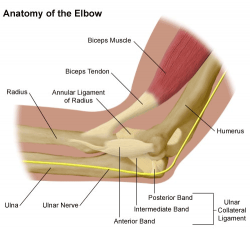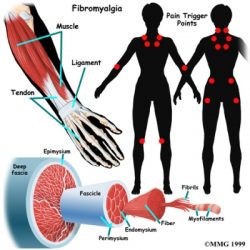I found this intro to a weight loss program sitting on the Yahoo site. It not only gives you a to height chart similar to the Body Mass Index that I hate so much (I have a bigger body type and would look kind of freaky at my mandate 180 pounds). The article that I have copied here also has lots of health benefits of having a healthy .
If you are over, you are more likely to develop health problems, such as heart disease, stroke, diabetes, certain types of cancer, gout (joint pain caused by excess uric acid), and gallbladder disease. Being over can also cause problems such as sleep apnea (interrupted breathing during sleep) and osteoarthritis (wearing away of the joints). The more over you are, the more likely you are to have health problems. Weight loss can help improve the harmful effects of being over. However, many over people have difficulty reaching their healthy body . Studies show that you can improve your health by losing as little as 10 to 20 pounds. If you want to fat burn you should to read the weight loss tips at Slinky slender and discover how to lose weight fast.
Weight-for-height chart
Use the weight-for-height chart below to see if you are over. Find your height in the left-hand column and move across the row to find your weight. If your falls within the moderate to severe overweight range on the chart, you are more likely to have health problems. Weights above the healthy range are less healthy for most people.

What Is Your Waist Measurement?
If you are a woman and your waist measures more than 35 inches, or if you are a man and your waist measures more than 40 inches, you are more likely to develop heart disease, high blood pressure, diabetes, and certain cancers. You may want to talk to your doctor or other health professional about the health risks of your .
Heart Disease and Stroke
Heart disease and stroke are the leading causes of death and disability for both men and women in the United States. Over people are more likely to have high blood pressure, a major risk factor for heart disease and stroke, than people who are not over. Very high blood levels of cholesterol and triglycerides (blood fats) can also lead to heart disease and often are linked to being over. Being over also contributes to angina (chest pain caused by decreased oxygen to the heart) and sudden death from heart disease or stroke without any signs or symptoms.
The Good News
The good news is that losing a small amount ofweight can reduce your chances of developing heart disease or a stroke. Reducing your weight by 10 percent can decrease your chance of developing heart disease by improving how your heart works, blood pressure, and levels of blood cholesterol and triglycerides.
Type 2 Diabetes
Noninsulin-dependent diabetes mellitus (type 2 diabetes) is the most common type of diabetes in the United States. Type 2 diabetes reduces your body’s ability to control your blood sugar. It is a major cause of early death, heart disease, kidney disease, stroke, and blindness. Over people are twice as likely to develop type 2 diabetes as people who are not over. You can reduce your risk of developing this type of diabetes by losing and by increasing your physical activity.
Controlling Diabetes with Weight Loss
If you have type 2 diabetes, losing and becoming more physically active can help control your blood sugar levels. If you use medicine to control your blood sugar, loss and physical activity may make it possible for your doctor to decrease the amount of medication you need.
Cancer
Several types of cancer are associated with being over. In women, these include cancer of the uterus, gallbladder, cervix, ovary, breast, and colon. Over men are at greater risk for developing cancer of the colon, rectum, and prostate. For some types of cancer, such as colon or breast, it is not clear whether the increased risk is due to the extra or to a high-fat and high-calorie diet.
Sleep Apnea
Sleep apnea is a serious condition that is closely associated with being over. Sleep apnea can cause a person to stop breathing for short periods during sleep and to snore heavily. Sleep apnea may cause daytime sleepiness and even heart failure. The risk for sleep apnea increases with higher body weights. Weight loss usually improves sleep apnea.
Controlling Diabetes with Weight Loss
If you have type 2 diabetes, losing and becoming more physically active can help control your blood sugar levels. If you use medicine to control your blood sugar, loss and physical activity may make it possible for your doctor to decrease the amount of medication you need.
Osteoarthritis
Osteoarthritis is a common joint disorder that most often affects the joints in your knees, hips, and lower back. Extra appears to increase the risk of osteoarthritis by placing extra pressure on these joints and wearing away the cartilage (tissue that cushions the joints) that normally protects them. Weight loss can decrease stress on the knees, hips, and lower back and may improve the symptoms of osteoarthritis.
Gout
Gout is a joint disease caused by high levels of uric acid in the blood. Uric acid sometimes forms into solid stone or crystal masses that become deposited in the joints. Gout is more common in overweight people and the risk of developing the disorder increases with higher body weights.
Gout notes:
Over the short term, some diets may lead to an attack of gout in people who have high levels of uric acid or who have had gout before. If you have a history of gout, check with your doctor or other health professional before trying to lose weight.
Gallbladder Disease
Gallbladder disease and gallstones are more common if you are over. Your risk of disease increases as your increases. It is not clear how being overweight may cause gallbladder disease.
Not Too Fast
Weight loss itself, particularly rapid loss or loss of a large amount of , can actually increase your chances of developing gallstones. Modest, slow loss of about 1 pound a week is less likely to cause gallstones.
Slow and Steady
Slow and steady loss of no more than 1 pound per week is the safest way to lose weight. Very rapid loss can cause you to lose muscle rather than fat. It also increases your chances of developing other problems, such as gallstones, gout, and nutrient deficiencies. Making long-term changes in your eating and physical activity habits is the best way to lose and keep it off over time.
Eat Better
Whether you are trying to lose or maintain your , you should take a look at your eating habits and try to improve them. Try to eat a variety of foods, especially pasta, rice, bread, and other whole-grain foods. You should also eat plenty of fruits and vegetables. These foods will fill you up and are lower in calories than foods full of oils or fats.
Little weight Loss – Big Benefit
If you are over, losing as little as 5 to 10 percent of your body may improve many of the problems linked to being over, such as high blood pressure and diabetes. For example, if you weigh 200 pounds and are considered over on the -for-height chart, you would need to lose 10 to 20 pounds. Even a small weight loss can improve your health.










Thank you for posting this information. I really love reading your post. I’ve learn a lot of things about it.